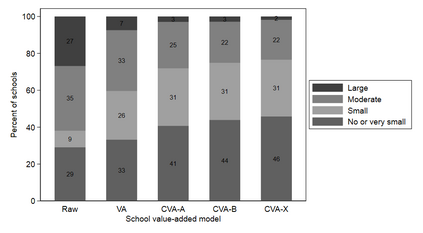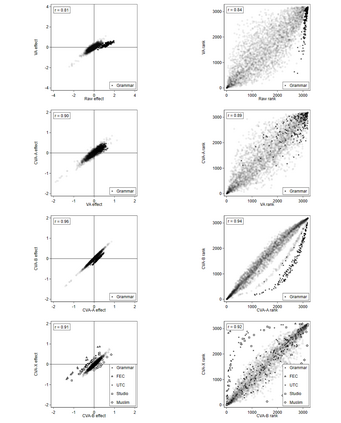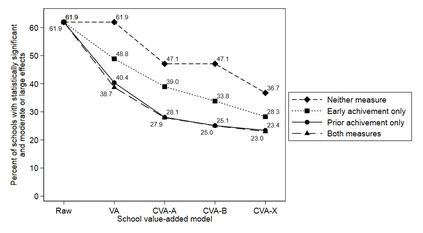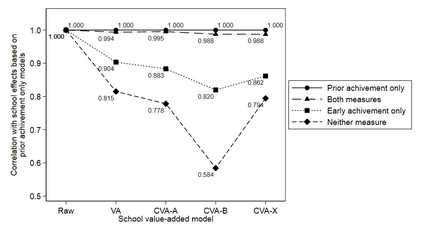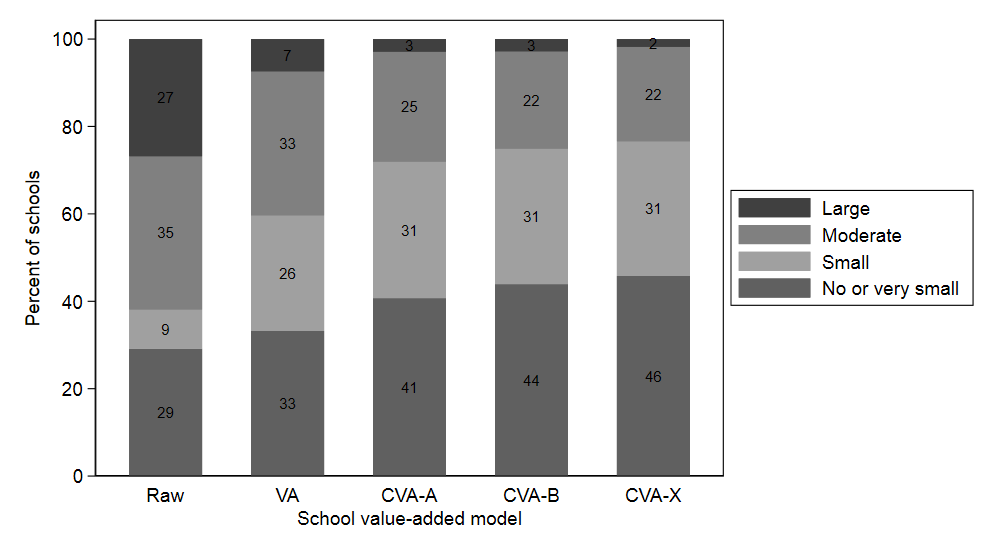School accountability systems increasingly hold schools to account for their performances using value-added models purporting to measure the effect of schools on student learning. The most common approach is to fit a linear regression of student current achievement on student prior achievement, where the school effects are the school means of the predicted residuals. In the literature further adjustments are made for student sociodemographics and sometimes school composition and 'non-malleable' characteristics. However, accountability systems typically make fewer adjustments: for transparency to end users, because data is unavailable or of insufficient quality, or for ideological reasons. There is therefore considerable interest in understanding the extent to which simpler models give similar school effects to more theoretically justified but complex models. We explore these issues via a case study and empirical analysis of England's 'Progress 8' secondary school accountability system.
翻译:学校问责制度越来越多地利用旨在衡量学校对学生学习的影响的增值模式,让学校对其表现负责; 最常见的办法是,将学生目前成绩的线性倒退与学生在学前成绩相适应,因为学校的作用是学校预测的残余物的学习手段; 在文献中,对学生的社会人口学,有时是学校的组成和“不可变化”的特点作了进一步调整; 然而,问责制度通常减少调整:对最终用户的透明度,因为数据缺乏或质量不足,或出于意识形态原因; 因此,人们很有兴趣了解更简单的模式在多大程度上在理论上更合理、但复杂的模式中产生了类似的学校影响; 我们通过案例研究和对英格兰的“进步8”中学问责制度的经验分析来探讨这些问题。

